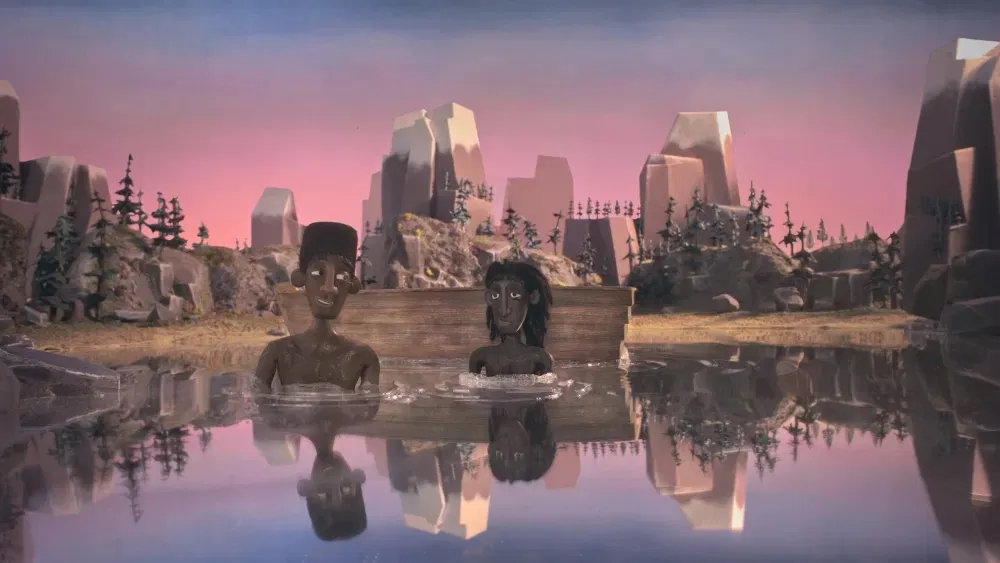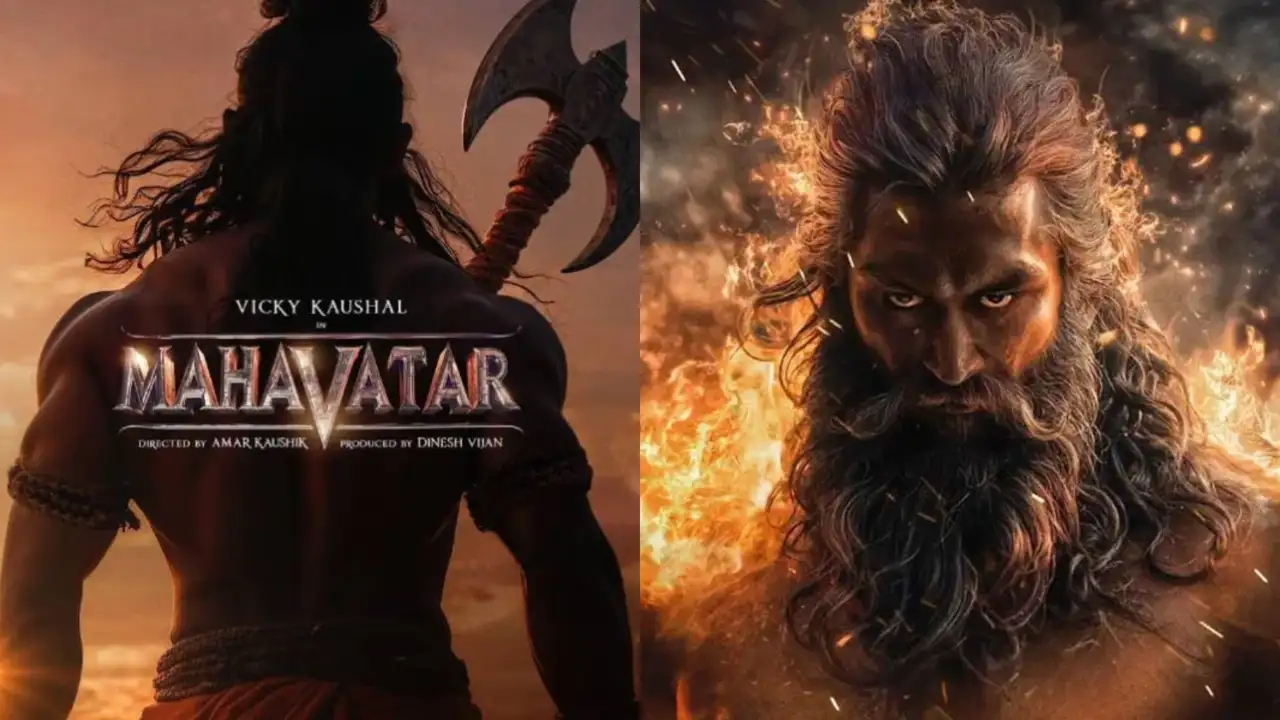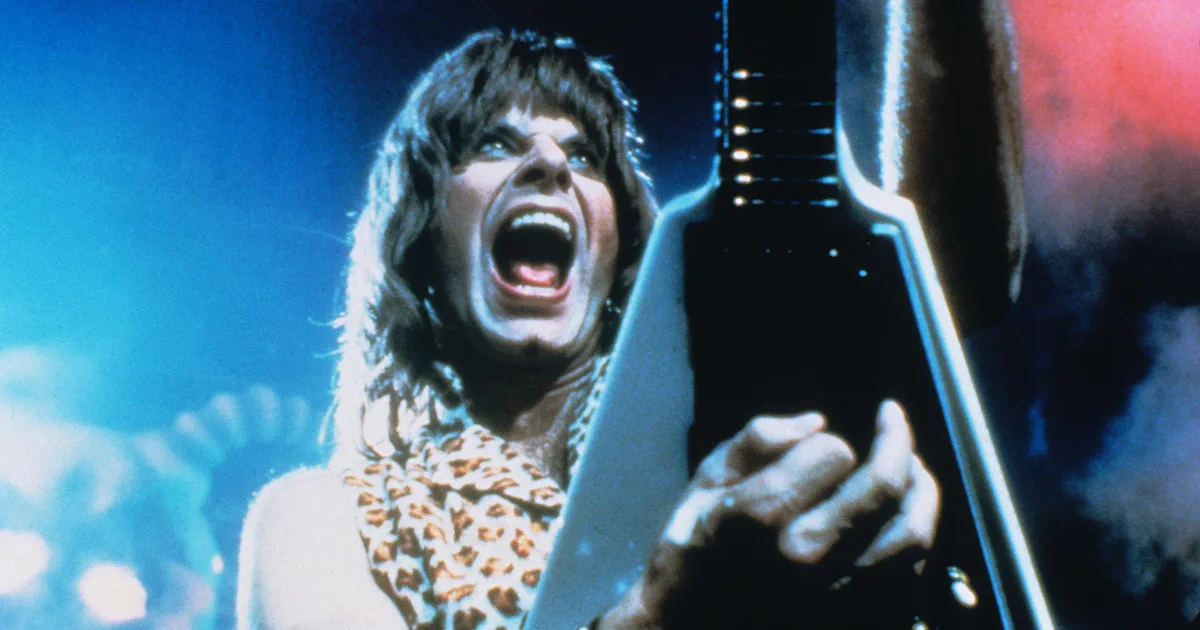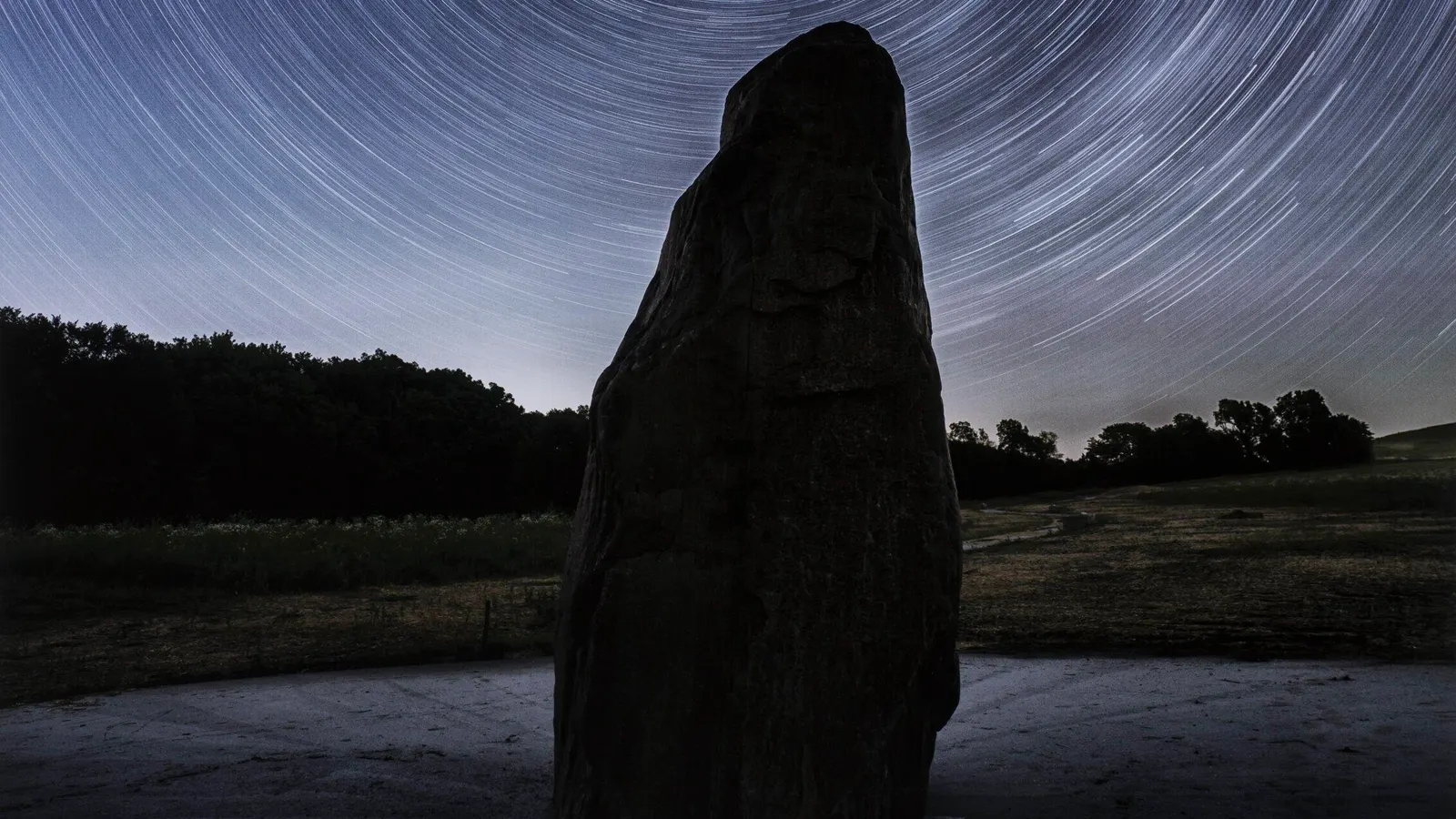
Nothing is better than being able to live freely as you are and in your own skin without persecution. In the stop-motion animated short, Two Black Boys in Paradise, directed and co-written by Baz Sells, based on the poem by award-winning writer Dean Atta, enduring love is the endgame. The film follows the blossoming relationship of Dula and Eden, two teenage Black boys, who refuse to hide their love in a society wrought with homophobia and racism, so the pair create their own safe paradise where they can explore the themes of identity, belonging and sexuality.
Two Black Boys in Paradise has premiered at the HollyShorts Film Festival, the San Francisco International LGBTQ+ Film Festival and the BFI Flare in London: LGBTQ+ Film Festival. It was also the recipient of the Iris Prize, which will secure the short a spot to air on Channel 4 in the U.K.
Below, Deadline speaks to Sells about the tenderness required to create a poignant queer story.
DEADLINE: When did you come across Dean Atta’s poem? What were your initial thoughts?
BAZ SELLS: Initially, I thought the [material] was beautiful. That goes without saying. It’s a multifaceted poem that shows a great deal of tenderness, resilience, pride and defiance. I was introduced to it by our producer Ben [Jackson], who heard Dean read at a poetry event. As soon as we got our heads together, both of us could see the possibility of a beautiful short film. I think it lends itself so well to the art of stop-motion because I feel like we could take a bit of a dual approach in terms of the visual imagery having senses rooted in reality, along with some of the struggles which the poem would speak of or hint at.
I have to say the initial writing period was beautiful because it’s such a rich poem. What I loved about it is that it challenges or asks questions of the audience, which is rare in a film; you’re almost breaking the fourth wall and bringing the audience in. I quite liked that, even though it brought its own unique set of challenges.
DEADLINE: How did you work with Dean to adapt the story structure?
SELLS: We initially created an outline of the story, and we went back and forth with the revisions between me, Ben, and Dean. We got denied funding from a couple of different places at first [when pitching], so we then refined the outline and eventually went to the BFI, and that was when we started moving to storyboarding. What was interesting during that time was that we were pretty set on our outline, but at some stage during the storyboard process, we were encouraged to go back to the script, which we’d kind of bypassed because we had an outline we were happy with. But that was a great process because obviously it helps you structure the film in terms of pacing on the page and helps get a sense of how long each scene will take and whether you need to take anything out or put anything in. So, it was a bit of a back and forth between all of us and a real collaborative effort because these themes are so important. There’s a temptation to try and say as much as you can possibly can about it, but in the end, we had to strip quite a few things back just to make it more focused.
DEADLINE: It’s amazing to think that in just nine minutes, you’ve covered all you did. You mentioned pulling from Ben’s experience as a queer man and Dean’s poem as a queer Black man. How did you find yourself relating to this material?
SELLS: The interesting thing is that Ben and I were already discussing making a film centered around him coming out. He didn’t come out until his early 30s, by which, we were maybe 10 years into our friendship. So, the scene in the market where the boys are holding hands was going to be the core of the short film that we were going to make together already. Alongside that was discussions with Dean, particularly about the kind of experiences he’s had, moments in which he has felt othered or moments in which he’s felt support from various people. There’s also a scene that involved police, which is an aspect of this discussion that is very hotly debated, but from my own point of view, it was interesting to be in that space.
I am straight and white, and we did have discussions when we were first writing it, but more so when we were then trying to get funding. Some real questions had to be asked, particularly, I was talking to Ben and Dean and saying, “Well, am I the right person to be telling the story?” There are certain aspects of both Dean and Ben’s experiences in feeling othered. I’m from a working-class background, so I kind of understand those kinds of feelings. However, this is a very particular kind of story, which, from my point of view, really had to be about listening. So, although there is a lot of myself in there, the way I would craft a film, the process was built on a lot of conversation. Some of it is difficult at times, and some of it is awkward, but this could only be done through a real collaborative effort. More so than any other project, I had to listen, which can be tricky because obviously, as a director, you want to take the lead, but ultimately, you have to make the right decision to drive the project forward. I made sure to be considerate of the feedback and experiences being shared with me.
DEADLINE: The short looks so gorgeous. Why was stop-motion the right avenue to tell the story?
SELLS: I’m primarily a stop-motion writer, director and cinematographer. But it is painstaking work. Some days, we were getting as little as 12 frames a day for the underwater scene because our studio was really working with a budget, so we couldn’t heat it overnight. And in the middle of winter, when we were shooting, it got so cold that the puppets would split. The craft is incredibly tactile. It also allowed us to go to places and stretch ourselves in terms of imagination. We had an interview a couple of days ago, and someone was asking me about the two worlds. Paradise is obviously this fantasy world, and the market [a place where the two characters end up when they leave paradise] is the real world. I can understand why people see it that way, but actually, I feel like the whole film exists somewhere between the reality of lived emotion and experience. It borrows from both those spaces. I felt like stop-motion really allowed us to tread that line.
Now, without a doubt, it would’ve been a lot easier to do in live action [laugh]. In fact, there was an experienced producer who encouraged us even to do it in 2D when we first put our pitch deck together, and I won’t lie, it was the most incredibly difficult thing I’ve ever done. It took five years from concept to completion, we were burnt out many times over, and particularly because we were trying to put the production together in a fair way. As short films, you don’t often get to pay people very well, but we had some fantastic backing from the BFI, so we tried to make sure everyone was paid well, or as best we could, and they weren’t working crazy hours. But in doing that, you have to take on a hell of a lot of time left on the board yourself. It was intense, to say the least.
DEADLINE: I would love to talk about the nudity and subsequent sex scenes. Was there a fear in having that in your short as you play this at different festivals? Or was it not even a thought that crossed your mind?
SELLS: The funny thing about that is we recently were shortlisted for the Iris Prize, which means the film is going to be broadcast on Channel 4 over here [in the U.K.], which is one of the main broadcasters. We had to send it off for a conversion to make it from 24 to 25 frames per second, and here we are just sending it off. We got a note back from the guy saying, “Well, here’s your conversion, but you could at least warn me about—” We’re completely blind to it now, but from the nudity point of view, I feel like, in fact, the BFI, our exec there, Aoife Hayes, she was incredible. She was very encouraging of us to go there, particularly with the sex scene.
There was an earlier version of the film in which we actually didn’t have a sex scene. The idea before that was to show our peacock kind of swooping in, and the script we wrote, we live vicariously through the peacock. I kind of imagined a situation where we kind of stay on the peacock, we get his reactions, and we get these moans and groans almost to the level that we really want to make the audience blush. But in the end, we kind of realized that it was important to go there, and we were not censoring ourselves not to show it, but we kind of wanted to give the boys their own moment. The sex scene was tonally quite difficult, and it was the last thing we shot. Ben had done some research and was sending me tons of images [laugh]. It was all very tastefully done. But a lot of it was heavily focused on the posing. So, these were beautiful still photographs that maybe wouldn’t then necessarily translate into intimacy. So, in the end, the sex scene was a real process of just getting them on camera, figuring out how our puppets would look, because Dula (Arun Blair-Mangat) is quite thin and can look quite awkward in some poses; it was tricky.
But in terms of censorship, we’ve not been held back. I don’t think we even really thought of it. Once we got past the novelty of seeing naked puppets every single day, you’re really just thinking about the characters, their motivations, and everything that’s much bigger outside of that as well.
DEADLINE: What would you like audiences to take away from the film?
SELLS: It really depends. It’s hard to answer it in terms of a specific audience member because this film was made very much for our audience in terms of the Queer and the Queer, Black audience, in that we really want people to feel seen. We want people to feel worthy and beautiful, and I think we’re living in a time where those are genuinely very difficult things for some people to come by, particularly when you have various rollbacks on initiatives. We want people to feel seen, but we also obviously are aware that not all of the audience is going to belong to these communities, so equally, we want people to go in with an open mind.
We’ve had a few beautiful experiences in terms of the feedback we’ve had at festivals and screenings so far. Some of it coming from within the Queer community, and people coming up and absolutely just loving the experience that they had and the warmth that it brought them. But equally, we’ve had some people in the audience who would not expect to sit in front of a film like this, and they’ve come out and said, “This really changed my kind of perspective on some of the things that I’ve thought about or assumed,” because I think when it comes to the media we consume, you can often get trapped in your own bubble.
And, obviously, cinema is a beautiful medium for experiencing things that you might not encounter in your own life, or for learning about people from these communities. But I feel like from Edan (Blair-Mangat) and Dula, just like in Dean’s poem, we have two characters that are both tender. They’re very real, but they’re also strong. And I feel like in whatever language it is or whatever community you’re from or culture, those are things that people can relate to. They’re universal. That’s one of the things I love about our boys is that they do go on a journey. They overcome, they take pride in themselves, and that leads to the ultimate goal or achievement for any of us, which is self-acceptance and self-love.
[This interview has been edited for length and clarity]



